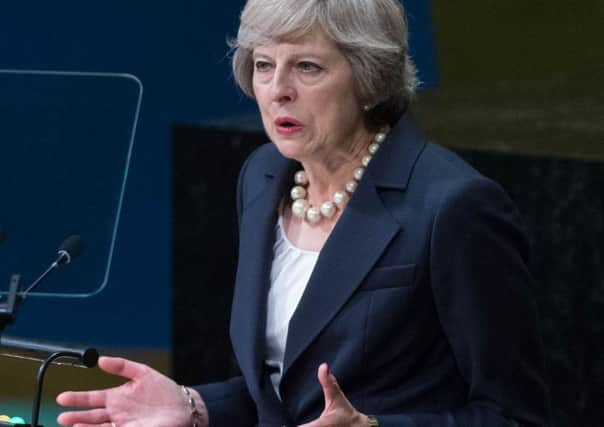Workers set to '˜have a say' on boss earnings


Theresa May promised to tackle corporate greed when she entered Number 10 amid concerns about soaring pay packages for top executives.
Pay for the CEOs of FTSE100 companies has risen from an average of £1 million in 1998 to £4.3 million in 2015, far outstripping the growth in average pay.
Advertisement
Hide AdAdvertisement
Hide AdA green paper published this week will include proposals to:


•Force companies to publish pay ratios that show the difference in earning between the chief executive and average employee• •Improve the effectiveness of remuneration committees and the extent to which they must consult shareholders and the wider company on pay
•Introduce binding votes on executive pay packages
As part of the plan to reform remuneration committees, the Government is considering whether employees’ representatives should be given an advisory role.
Officials believe their input would spell out to the committee the impact on the wider workforce of high levels of remuneration for top executives.


As part of the proposed shake-up, Whitehall experts have looked at measures being taken in other countries including the United States, France and Australia.
A Government source said: “Businesses are a pillar of our society, creating employment opportunities and contributing significantly to funding our country’s public services.
“The UK has led the world in corporate governance, but our strong reputation can only be maintained if government and business regularly reviews and upgrades our governance.
“Good governance helps companies take better decisions, for their own long-term benefit and the economy overall - ensuring public trust in British business and making sure the UK is the best place in the world to do business.”
Advertisement
Hide AdAdvertisement
Hide AdThe Prime Minister believes that measures to tackle rogue bosses are required to improve the reputation of capitalism in the face of the rise in anti-globalisation and anti-business sentiment.
The publication of the green paper comes after Mrs May appeared to water down her commitment on giving workers a say in how their companies are run, ruling out imposing the appointment of employees to company boards.
That was viewed as an olive branch to business, but the proposals on pay could put her on a fresh collision course with Britain’s bosses.
Just days ago the the Bank of England’s chief economist Andy Haldane joined company chiefs in a report published by the Big Innovation Centre rejecting proposals for annual binding votes on pay and the publication of pay ratios.
The report argued that a binding vote would mean Britain’s top firms losing out on top talent.
It also said that pay ratios do not “lend themselves to valid comparisons between companies” and would likely add to misunderstanding over executive pay as well as potentially creating “perverse incentives”.
Instead, the report argued for less complex pay structures, a “Fair Pay Charter” and giving shareholders more say on executive pay.